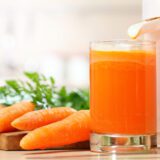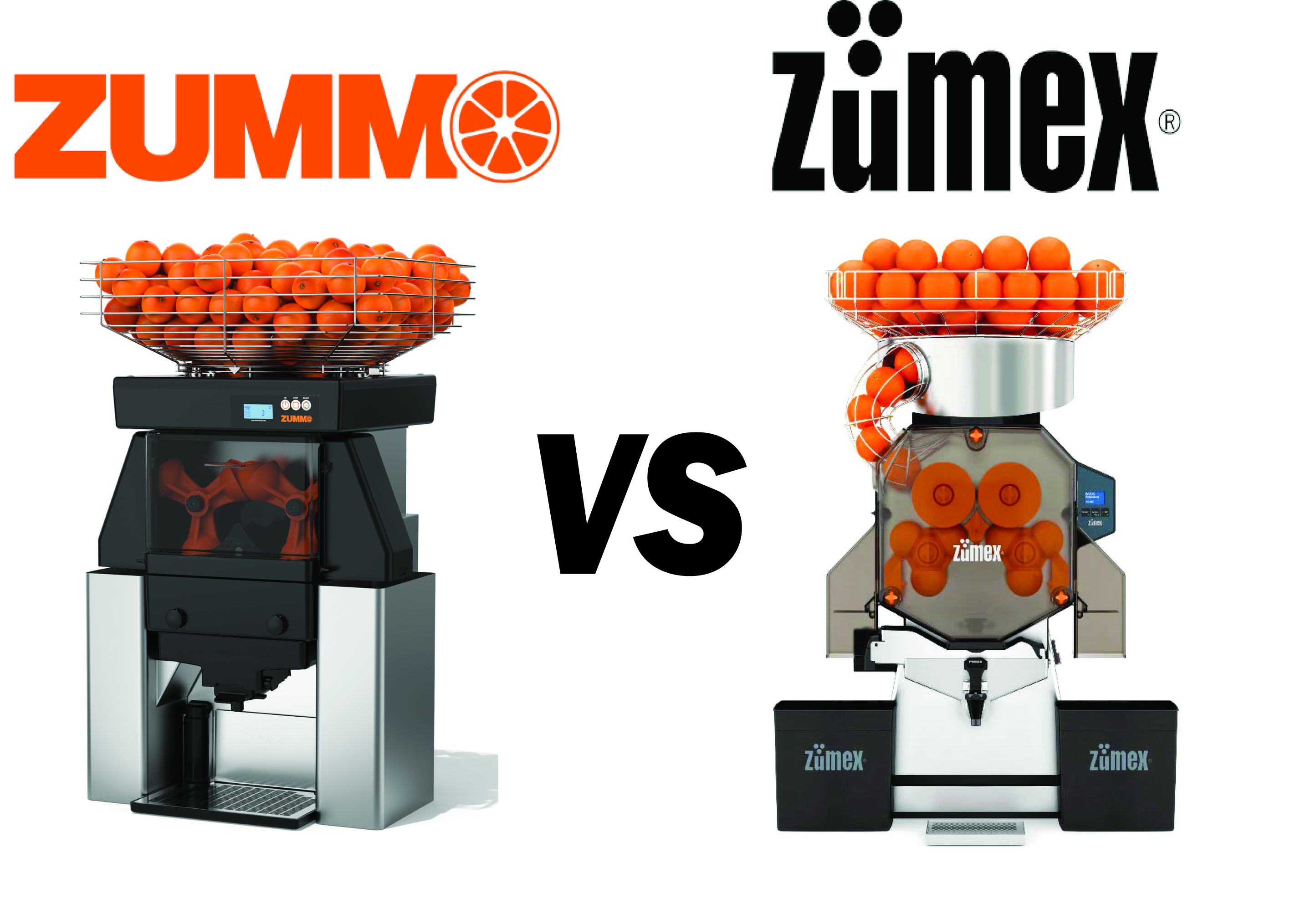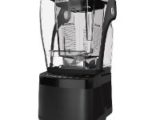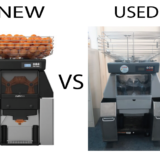Blender Vs Juicer: What’s The Difference?
by Ryan
Are you standing in your kitchen, staring at your blender and juicer, and wondering what exactly sets them apart? You’re not alone. Both gadgets have their merits, but they serve different purposes and produce distinct results.
If you’re trying to decide which one deserves a spot on your countertop, you’ve come to the right place.
In this article, we’ll break down the differences between blenders and juicers, their unique benefits, and how to choose the right one for your needs.
Whether you’re into smoothies, fresh juice, or both, we’ve got you covered.
Let’s get started.
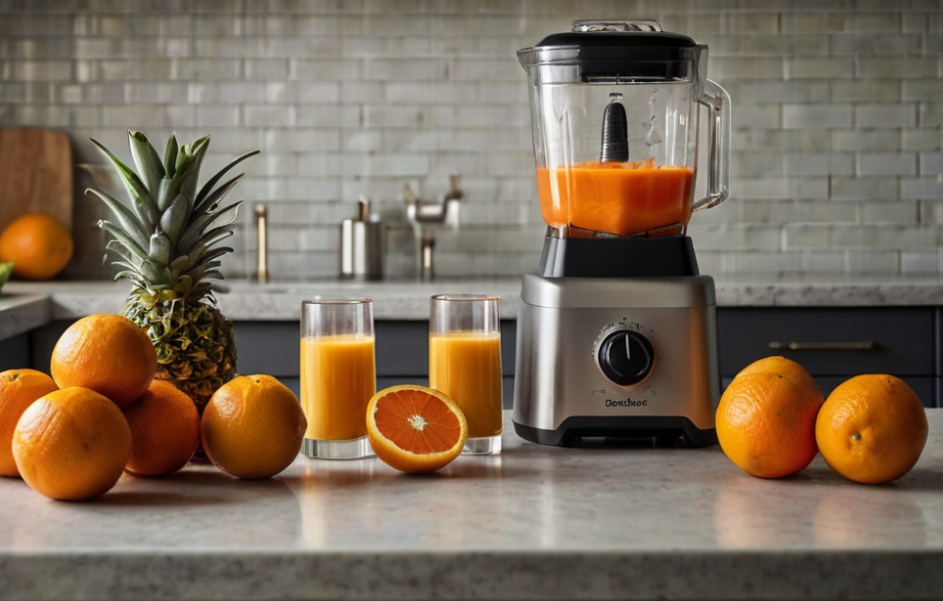
What is a Blender?
A blender is your kitchen’s all-purpose mixing marvel. Essentially, it’s a motorized appliance with sharp blades designed to chop, puree, and blend ingredients into smooth concoctions. It’s your go-to gadget for anything that needs a good mix.
Blenders come in several varieties to suit different needs. Countertop blenders are the most common, featuring a jar with blades at the bottom and perfect for making smoothies or large batches of soups.
Immersion blenders, also known as stick blenders, are handheld and great for blending directly in pots or pitchers – think pureed soups and quick sauces. Then there are high-speed blenders, like the Vitamix or Blendtec, which pack a powerful punch and can handle tough ingredients like nuts and ice with ease.
Common uses for blenders include making creamy smoothies, silky soups, and delicious sauces. They’re also handy for crushing ice, whipping up pancake batter, or even making nut butter. In short, if it needs to be smooth and blended, a blender is your best bet.
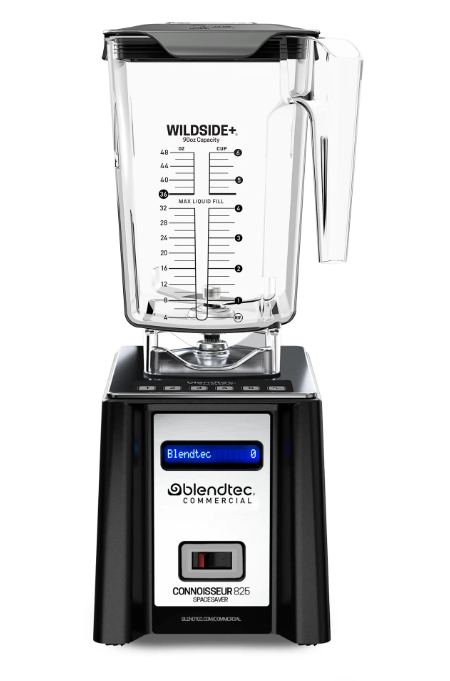
What is a Juicer?
A juicer is your ticket to fresh, nutrient-packed juices. Unlike blenders, juicers extract liquid from fruits and vegetables, leaving the pulp behind. This means you get a smooth, concentrated juice that’s easy to drink and packed with vitamins.
Juicers come in a few different types, each with its own set of benefits. Centrifugal juicers are the most common and work by grinding fruits and veggies into a pulp, then spinning it at high speeds to separate the juice. They’re quick and efficient, perfect for everyday juicing.
Masticating juicers, also known as slow or cold-press juicers, use an auger to crush produce slowly, preserving more nutrients and yielding more juice. They’re great for leafy greens and wheatgrass. Citrus juicers are specialized for, you guessed it, citrus fruits. They’re simple to use and perfect for getting every drop out of your oranges, lemons, and limes.
Juicers are ideal for making fresh fruit and vegetable juices. Whether you’re into a morning glass of orange juice, a green juice packed with kale and spinach, or a refreshing carrot-ginger blend, a juicer will help you create vibrant, healthy drinks with ease.
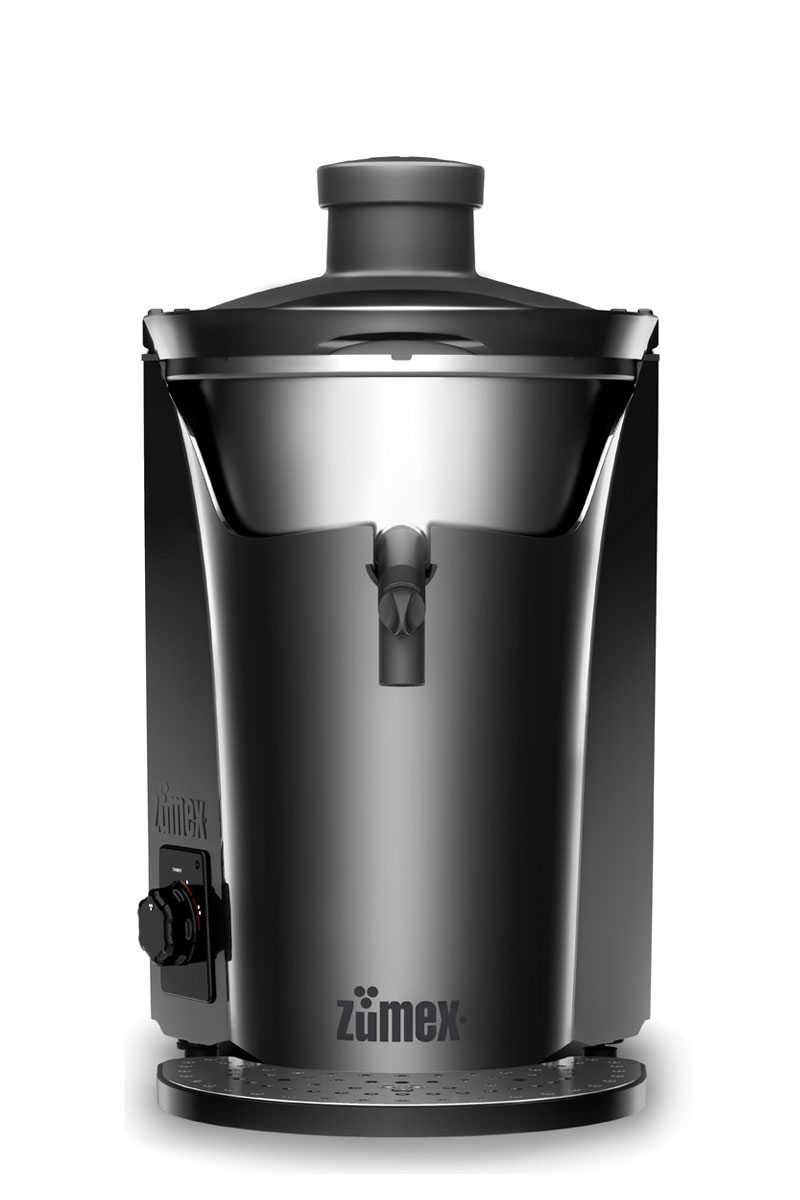
Key Differences Between Blenders and Juicers
When it comes to blenders and juicers, their main differences boil down to purpose, functionality, and the results they produce. Let’s break it down:
Purpose and Functionality Blenders are all about whole food processing. They take your fruits and veggies and blend them into a smooth consistency, retaining all the fiber. This means you get a thicker, more filling drink like a smoothie or soup, with all the nutrients and fiber intact. Blenders are perfect for when you want to enjoy everything the ingredient has to offer, without losing any part of it.
Juicers, on the other hand, are designed for extracting juice and separating pulp and fiber. They strip away the solid parts of fruits and veggies, leaving you with a pure, liquid juice that’s smooth and easy to drink. Juicers are your go-to for a quick, concentrated shot of nutrients, perfect for when you want a light, refreshing beverage without the bulk of fiber.
Nutritional Differences Blenders retain all the fiber from the fruits and vegetables, which is great for digestion and keeping you full longer. Juicers remove the fiber, resulting in a more concentrated nutrient boost per serving. You get more vitamins and minerals in each sip, making it a potent way to start your day.
Texture and Consistency Blenders produce a thick, smoothie-like consistency, which can be more filling and satisfying. On the flip side, juicers deliver a thin, liquid consistency that’s easy to drink and refreshing, especially on a hot day.
Waste Production Blenders use the whole produce, resulting in minimal waste. Everything you put in gets blended up and ends up in your drink. Juicers, however, produce pulp waste as they separate the juice from the fiber. This can be composted or repurposed, but it does mean more leftover material.
In a nutshell, blenders are your all-in-one, fiber-packed drink creators, while juicers give you a smooth, nutrient-rich beverage with a bit more waste. Choose based on your texture preference, nutritional goals, and how much waste you’re willing to handle.
Pros and Cons of Blenders
Pros
- Versatility: Blenders are multi-talented. They can whip up smoothies, soups, purees, sauces, and even nut butters. If you want an all-in-one kitchen companion, a blender is your best bet.
- Retains Dietary Fiber: Since blenders use the whole fruit or vegetable, you keep all the fiber. This is great for digestion and helps keep you full longer.
- Generally Easier to Clean: Most blenders are straightforward to clean, especially those with removable blades and dishwasher-safe parts.
Cons
- Not Ideal for Juicing: Blenders aren’t the best for juicing certain fruits and vegetables. You’ll end up with a thick smoothie instead of a clear juice.
- Can Be Noisy: Blenders can be quite loud, especially high-speed models. This might be a downside if you’re blending early in the morning or late at night.
View this post on Instagram
Pros and Cons of Juicers
Pros
- Clear, Pulp-Free Juice: Juicers provide smooth, clear juice without any pulp. Perfect for those who prefer a light, refreshing drink.
- Higher Nutrient Absorption: By removing the fiber, juicers concentrate the nutrients, making them easier for your body to absorb quickly.
- Great for Specific Juice Recipes: Juicers are excellent for making specific juice blends and recipes, especially those involving leafy greens and hard veggies.
Cons
- Removes Fiber: Juicers strip out the fiber from fruits and vegetables, which is a downside if you’re looking to maintain fiber intake in your diet.
- More Waste: Juicers produce pulp waste, which means you’ll need to find ways to dispose of or use the leftover pulp.
- Harder to Clean: Juicers often have more parts and can be trickier to clean, especially if you’re using a masticating juicer.
Choosing the Right Appliance for Your Needs
When deciding between a blender and a juicer, consider your lifestyle and dietary goals. If you’re looking for meal replacements, enjoy thick smoothies, or want a versatile appliance that can handle everything from soups to sauces, a blender is ideal for you.
It’s also great if you want to retain the fiber in your diet. On the other hand, if your focus is on nutrient-dense juices, quick absorption of vitamins and minerals, and clear, pulp-free beverages, a juicer is the way to go. It’s perfect for those who love fresh juice as a daily staple.
You should also consider space and budget. Blenders tend to be more affordable than juicers, especially high-end masticating juicers. However, high-speed blenders can be pricey too. Additionally, blenders generally take up less space and can be easier to store.
Juicers, especially larger models, can be bulkier and require more counter space. Think about your kitchen setup and how much space you can dedicate to your new appliance.
View this post on Instagram
Conclusion
To recap, blenders and juicers each offer unique benefits depending on your needs and preferences. Blenders are versatile, retaining all the fiber and making them perfect for smoothies, soups, and sauces. Juicers, on the other hand, provide nutrient-dense, pulp-free juice ideal for quick absorption and refreshing drinks. While blenders are generally more affordable and easier to store, juicers can offer a more concentrated nutrient boost.
Ultimately, the best choice comes down to your individual health goals and lifestyle. If you prefer hearty, fiber-rich blends or need a multifunctional kitchen tool, a blender might be your best bet. If you’re focused on consuming fresh, nutrient-packed juices, then a juicer could be the right fit. Consider what aligns best with your daily routine and dietary objectives to make the most informed decision.


